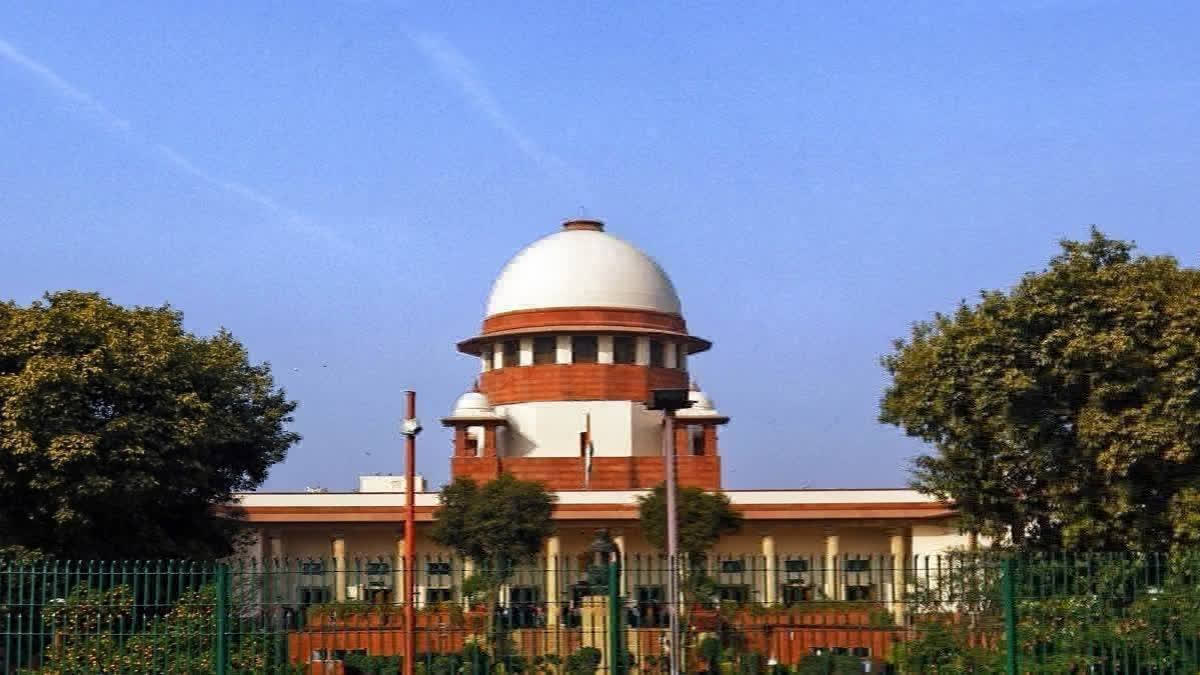New Delhi: The Supreme Court on Thursday said courts have to ensure that the right to personal liberty and individual freedom is not arbitrarily taken away even temporarily without following the procedure prescribed by the law while quashing the preventive detention of a person.
A three-judge bench comprising Justices B R Gavai, Prashant Kumar Mishra, and K V Viswanathan observed that though the concept of personal liberty and individual freedom can be curtailed by preventive detention laws, the courts have to ensure that the right to personal liberty and individual freedom is not arbitrarily taken away even temporarily without following the procedure prescribed by law.
"It has been held that when a detention order is passed all the material relied upon by the detaining authority in making such an order must be supplied to the detenu to enable him to make an effective representation," said the bench, in its 60-page judgment.
The bench stressed that it is required in order to comply with the mandate of Article 22 (5) of the Constitution, irrespective of whether the detenu had knowledge of such material or not.
The bench said the constitutional requirements under Article 22(5) of the Constitution of India are twofold: (1) the detaining authority must, as soon as practicable, after the detention communicate to the detenu the grounds on which the order of detention has been made, and (2) the detaining authority must afford the detenu the earliest opportunity of making the representation against the order of detention.
The bench said that failure or even delay in furnishing documents, regarding the detention, would amount to denial of the right to make an effective representation.
The bench said it is thus a settled position that though it may not be necessary to furnish copies of each and every document to which a casual or passing reference has been made.
"It is imperative that every such document which has been relied on by the detaining authority and which affects the right of the detenu to make an effective representation under Article 22(5) of the Constitution has to be supplied to the detenu”, it added.
The bench said the documents relied on by the detaining authority which form the basis of the material facts which have been taken into consideration to form a chain of events could not be severed.
"The High Court was not justified in coming to a finding that despite eschewing certain material taken into consideration by the detaining authority, the detention order can be sustained by holding that the detaining authority would have arrived at such a subjective satisfaction even without such material," said the bench.
The bench noted that though the detenu had made a representation on 27th September 2023 to the jail authorities for onward transmission of the same to the detaining authority and the central government, it is merely stated in the counter affidavit that the jail authorities informed that the representation was submitted by the detenu.
"The jail authorities had sent the said representations to the concerned authorities through ordinary post. It is stated that however, neither the detaining authority nor the central government received the said representations," noted the bench.
The bench said it deprecates the practice of the prison authorities in dealing with the valuable right of the detenu in such a casual manner. "In the matters pertaining to personal liberty of the citizens, the authorities are enjoined with a constitutional obligation to decide the representation with utmost expedition. Each day’s delay matters in such a case," said the bench.
The apex court made these observations, while quashing the preventive detention of a person on account of a delay of 9 months by the jail authorities in communicating his representation and also the non-supply of relevant materials.
The appellant Jaseela Shaji, who is the wife of one Appisseril Kochu Mohammed Shaji, moved the apex court being aggrieved by the judgment and order passed on March 4, 2024, by the division bench of the High Court of Kerala.
The High Court had dismissed the said habeas corpus petition filed by the appellant for production of the detenu, who was detained pursuant to the order of detention dated 31st August 2023, passed under the provisions of the Conservation of Foreign Exchange and Prevention of Smuggling Activities Act, 1974.
The apex court on July 31, allowed the present appeal and quashed and set aside the High Court order and also the order dated August 31, passed by the Joint Secretary (COFEPOSA), COFEPOSA Unit, Central Economic Intelligence Bureau, Department of Revenue, Ministry of Revenue, government of India directing the detention of the detenu and the order dated 28th November 2023 passed by the under-secretary, COFEPOSA Wing, Central Economic Intelligence Bureau, Department of Revenue, Ministry of Finance, confirming the detention order of the detenu.
The bench said it is clear that the representations dated 27th September 2023 of the detenu were rejected by the detaining authority and the central government on 11th June 2024 and 12th June 2024 respectively i.e. after a period of almost 9 months from the date of making the same.
"Even otherwise, from the Memoranda dated 12th June 2024……there would be at least 27/20 days’ delay on the part of the Central Government and the Detaining Authority in deciding the representation of the detenu after it reached them subsequent to the filing of the present appeal," said the apex court.
“We have directed that the detenu be released forthwith if not required in any other case…”, said the apex court.



